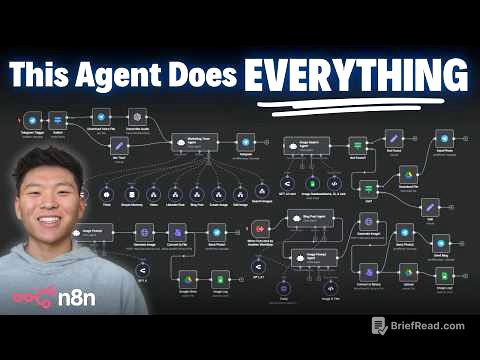TLDR;
The video discusses the shift in the software engineering job market, from a period of lavish perks and high demand to one of layoffs, return-to-office mandates, and increased pressure due to AI. It explores the factors contributing to this change, including overhiring during the pandemic, rising interest rates, and a focus on short-term profits. The video also touches on the rollback of DEI initiatives and the importance of setting boundaries and prioritizing personal well-being in the current tech landscape.
- The tech industry experienced a boom followed by mass layoffs due to overhiring and economic shifts.
- Companies are increasingly focused on short-term profits, leading to stricter work policies and the adoption of AI.
- DEI initiatives have been rolled back, revealing a focus on profit over genuine social impact.
- Software engineers need to set boundaries and prioritize their well-being in this evolving landscape.
Intro: The Changing Landscape of Software Engineering [0:00]
The video starts by highlighting the contrast between the past and present states of the software engineering job market. Once characterized by extravagant perks and high demand, the field now faces layoffs and concerns about AI replacing jobs. Despite companies reporting record profits, layoffs continue, affecting both remote and in-office employees. The video aims to explain how this shift occurred and what the future holds for software engineers.
The Rise of Tech and the Engineer's "Untouchable" Status [0:45]
Following the 2008 financial crisis, the tech industry became an attractive career path, offering high salaries and the potential to make a positive impact. Inspired by stories like "The Social Network," many believed in the endless demand for engineers. Education systems and coding boot camps capitalized on this trend, significantly increasing the number of computer science graduates and boot camp attendees. This created a sense of power and "untouchability" among software engineers, who often felt like more than just employees due to the pampering and mission-driven environments.
The 2021 Tech Jobs Bubble and Herd Mentality [2:46]
The post-pandemic period in 2021 saw an unprecedented tech jobs bubble, driven by a herd mentality among tech companies. When one company like Google hired aggressively, others followed suit, further increasing demand. This frenzy led to companies like Meta hiring people for the sake of hoarding talent, without a clear purpose. During this time, coding boot camps saw nearly all their students landing jobs with significant salary increases, but this bubble was about to burst.
The Burst of the Bubble and the Shift in Priorities [4:25]
2023 marked the worst year for Silicon Valley since the dot-com crash, with over 260,000 jobs lost. As pandemic restrictions lifted, tech companies realized they had overhired. High interest rates led companies and investors to shift away from risky "moonshot" projects towards short-term, sure-fire investments. Mass layoffs became a quick way to show returns, and the herd mentality continued as companies followed each other's lead. Despite the negative impact on employees, Wall Street rewarded these actions, as seen with Meta's stock price increase after layoffs.
The New Normal: Return to Office, AI Integration, and DEI Rollbacks [6:09]
By 2025, the tech industry vibe had drastically changed. Extravagant perks were replaced by return-to-office mandates and the threat of ongoing layoffs. Companies like Apple, Meta, TikTok, and Google mandated a three-day return to work, while Amazon required full-time in-office presence. Some companies cut back on free swag. Meta even labeled layoffs as "performance-based," displaying a lack of empathy. Additionally, companies are pushing AI integration, with some requiring employees to use AI tools and factoring it into performance reviews. Many companies rolled back DEI initiatives, revealing that these programs were driven by profit rather than genuine care.
The Future for Software Engineers: Setting Boundaries and Recognizing Reality [10:17]
While many feel nostalgic for the "glory days" of 2021, it's important to recognize that layoffs and stricter deadlines are the norm in most white-collar jobs. Despite the changes, software engineers still generally earn more. It's crucial to understand that employees are often seen as headcount on a balance sheet and to avoid being blinded by false camaraderie. Setting firm boundaries with work and prioritizing personal well-being is essential, as companies will prioritize profits over employee wellness.








